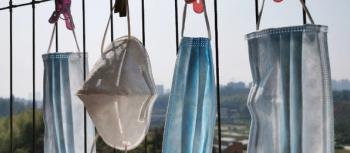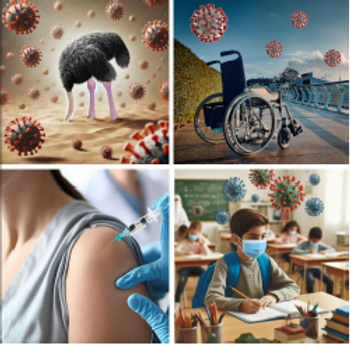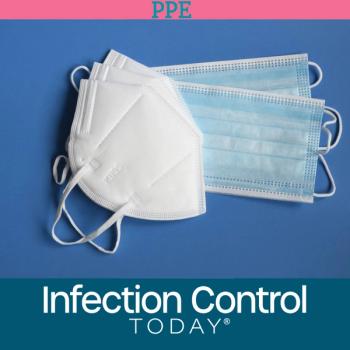
Don’t Be Fooled: CDC Website Posts Photos of Counterfeit N95 Masks
Lives are at stake and counterfeit N95 respirators make things worse for infection preventionists and others trying to care for COVID-19 patients. If you suspect that something being billed as an N95 is fake, report it to the CDC.
Charlatans rarely miss a chance to take advantage of a crisis, and that’s presently playing out amidst the COVID-19 pandemic. People are selling counterfeit N95 respirators, warns the US Centers for Disease Control and Prevention (CDC). The agency posted photos of dozens of counterfeit N95 masks on its
“Counterfeit respirators are products that are falsely marketed and sold as being NIOSH-approved and may not be capable of providing appropriate respiratory protection to workers,” the CDC warns. “When NIOSH becomes aware of counterfeit respirators or those misrepresenting NIOSH approval on the market, we will post them here to alert users, purchasers, and manufacturers.”
According to the CDC, here are the signs that a respirator might be counterfeit:
· No markings at all on the filtering facepiece respirator (FFR).
· No approval (TC) number on the FFR or headband.
· No NIOSH markings.
· NIOSH spelled incorrectly.
· Presence of decorative fabric or other decorative add-ons (e.g., sequins).
· Claims for the of approval for children (NIOSH does not approve any type of respiratory protection for children).
· Filtering facepiece respirator has ear loops instead of headbands.
Look for a NIOSH-approved label on the packaging or on the users’ instructions. Additionally, an abbreviated approval is affixed to the FFR itself. “NIOSH-approved FFRs will always have one the following designations: N95, N99, N100, R95, R99, R100, P95, P99, P100,” the CDC states. Verification of the product can be found on the
The CDC is not the only one keeping an eye on just how N95s are being sold. Sometimes counterfeit peddlers of facemasks will attempt to piggyback on the makers of N95s that do meet NIOSH guidelines. For instance, 3M recently
The CDC warns that “Medicos is selling an N95 respirator using the Moldex approval number and label without Moldex’s permission. Medicos is not a NIOSH approval holder or private label holder.”
The CDC’s warnings are jargon free; they could be points being made by a friend. Examples:
· This product is not NIOSH-approved. Look at the markings on the front. The logo is wrong, there is no approval number.
· This product is not NOSH approved. No NIOSH logo or approval number on the face of the product.
And this warning is a particular favorite of the editors at Infection Control Today®.
“This is an example of a counterfeit N95 Respirator that was brought to NIOSH’s attention,” the CDC writes. “While the TC number and private label holder are valid, this unapproved unit can be identified by the misspelling of NIOSH on the front of the respirator.”
It’s spelled “NISH.”
And the point being made is crucial. Lives are at stake and counterfeit N95 respirators make things worse for infection preventionists and others trying to care for COVID-19 patients. If you suspect that something being billed as an N95 is fake, report it to the CDC.
Newsletter
Stay prepared and protected with Infection Control Today's newsletter, delivering essential updates, best practices, and expert insights for infection preventionists.




